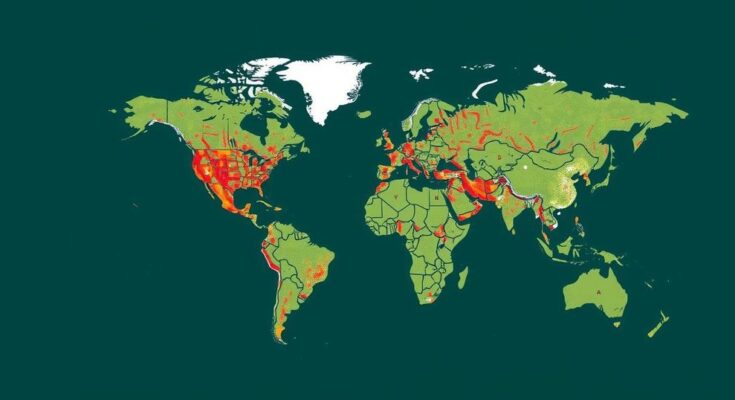The U.N. report reveals a substantial shortfall in climate adaptation financing for developing nations, with only $28 billion available against an annual need of $359 billion. As COP29 approaches, funding allocation discussions will be crucial, especially in light of increasing climate-related disasters. Inger Andersen of UNEP stresses the urgency of enhanced adaptation efforts.
A recent United Nations report highlights a significant financial shortfall in the aid provided to developing countries for climate change adaptation. The report indicates that while funding reached $28 billion in 2022, a substantial increase from the previous year, it still falls far short of the $359 billion required annually. This gap remains critical as nations prepare for the upcoming COP29 climate talks in Azerbaijan, where discussions on funding allocations are expected to be a focal point. Inger Andersen, the Executive Director of the U.N. Environment Programme (UNEP), emphasized the urgent need for enhanced adaptation measures to protect vulnerable communities from the escalating impacts of climate change. Effective adaptation finance involves building infrastructure to withstand extreme weather and other climate-related challenges; however, guidance on the optimal use of these funds is also necessary, given the varied quality of existing strategies among nations. Furthermore, there are concerns about the global trajectory of climate warming, with projections suggesting a potential increase of 2.6 to 3.1 degrees Celsius over the next few decades, exceeding the original target of limiting warming to 1.5 degrees Celsius.
The subject of climate change adaptation financing is crucial as developing nations bear the brunt of its adverse effects. Despite growing recognition of the need for support, financial resources for adaptation have remained insufficient. The U.N. has been actively involved in addressing climate issues through various agreements, including the Paris Agreement. The upcoming COP29 in Azerbaijan serves as a platform where nations will negotiate critical financial commitments, impacting vulnerable populations significantly affected by climate-related disasters.
In conclusion, the findings of the U.N. report underscore a pressing financial gap that developing countries face in their efforts to adapt to climate change. With the need for over $359 billion annually, the current funding of $28 billion is inadequate. The anticipated discussions at COP29 on such funding will be pivotal, as the world stands at a crossroads in addressing the escalating climate crisis. Without substantial financial commitments and effective strategies in place, the future could remain dire for the world’s most vulnerable populations.
Original Source: www.swissinfo.ch




